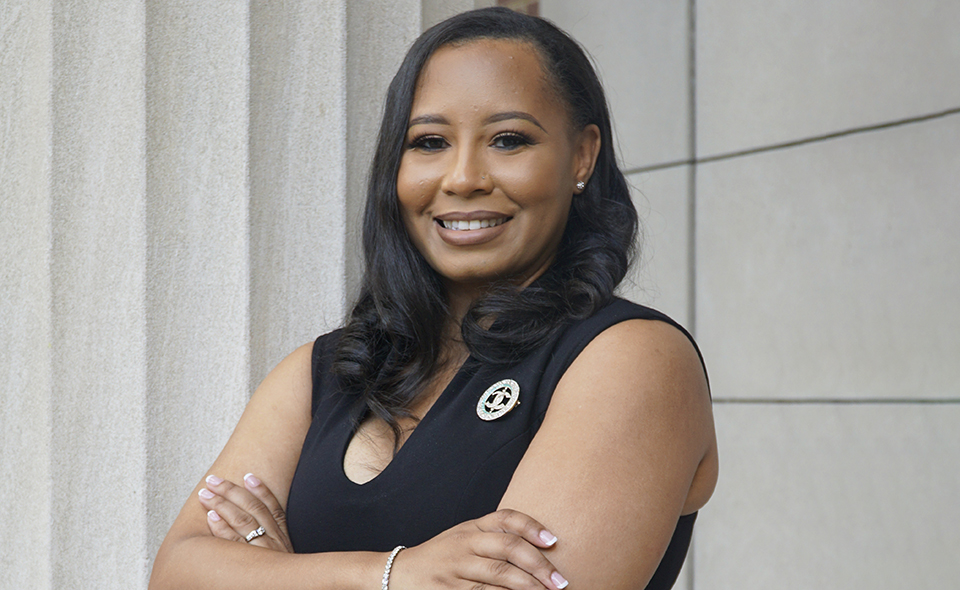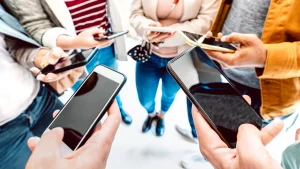In this feature, we have the pleasure of speaking with experienced special education litigator Nicole Hull, who explores the struggles faced by children and families during the litigation process and how her practice works to achieve the best possible outcome for those with no other recourse.
Special education litigation is a very niche area. How did you get involved in this type of work?
I remember sitting in my first special education meeting and feeling overwhelmed and under-prepared. As the meeting progressed, I felt like I was observing a meeting about my child's education instead of participating in a collaborative effort. I did not understand the terms the administrators were using, the data they presented to me, or whether I should even trust the teachers and administrators to do what was best for my child. I felt hopeless and alone.
I firmly believe that no parent should ever have to feel this way while trying to advocate for their child. Therefore, my law practice focuses on helping parents understand how the law works so that they can make informed decisions that protect their children's safety, future and best interests. At The Hull Firm, I litigate matters involving the violations of students’ and parents’ special education rights during the process of identification and eligibility, educational program development, and service implementation.
What is Free Appropriate Public Education (FAPE) and what does it cover?
The right to a Free Appropriate Public Education (FAPE) is an educational entitlement of all students in the United States. The right to a FAPE is a civil right rooted in the Fourteenth Amendment, which requires schools to provide students with disabilities with special education and related services, at public expense, designed to prepare those students for the future.
To provide FAPE to a student, schools must provide students with an education, including specialised instruction and related services where necessary, designed to prepare the child for "further education, employment, and independent living". Under the Individuals with Disabilities Education Act (IDEA), federal and state laws require that children with disabilities and their families have specific educational rights and procedural protections for exceptional students. The law provides for specialised instruction in the least restrictive environment possible that meets these students' challenges – whether physical disabilities, developmental disabilities, behavioural or emotional disabilities, or sensory impairment.
My law practice focuses on helping parents understand how the law works so that they can make informed decisions that protect their children's safety, future and best interests.
A growing number of parents and guardians are suing schools and state education departments for failing to meet special needs. In your opinion, what reasons are behind this trend? What can schools do to protect themselves from legal action?
As schools pivoted to virtual learning, they were unable to provide all of the special education supports and services that some students require to access the curriculum and receive FAPE. While schools tried to determine how to provide these critical supports virtually, many students with disabilities experienced interruptions in instruction or a complete loss of learning until in-person learning resumed.
Once schools returned to in-person learning, students with disabilities expected schools to address the learning loss and denial of FAPE immediately by providing plans for compensatory services and extended learning opportunities. However, as many schools suddenly faced widespread teacher and staff resignation, in addition to debates on whether to require vaccinations and masks for students and staff, and how to address the financial impacts of pandemic learning, students have been forced to initiate litigation to make sure that their right to receive FAPE is not lost in the chaos of pandemic education.
Legally speaking, what is the different between an Individualised Education Program (IEP) protected under the Individuals with Disabilities Education Act (IDEA) and a 504 Plan protected under Section 504 of the Rehabilitation Act?
When students require accommodations to help support them in school, they can either be provided with an IEP or 504 Plan. The differences between the two can be very confusing and making the wrong choice can have a significant impact on a child's education. While both options can provide a student with supports, there are a few key differences that a parent and attorney should consider before deciding which option to pursue for a student.
Individualised Education Plan (IEP)
Purpose: An IEP provides for specialised instruction and support for eligible students in grades K–12.
Eligibility: A student's educational performance must be "adversely affected" by a disability or diagnosis in one of the 13 disability categories outlined in the Individuals with Disability Education Act (IDEA).
Impact on Curriculum: An IEP is an individualised plan that customises instruction to meet a student's goals and objectives developed by the IEP team. The IEP details the student's individual academic performance, services, providers, and placement. The IEP is reviewed regularly and amended as needed to assist the student meet the goals outlined in the IEP.
Safeguards and Recourse: IDEA provides very specific procedural safeguards to protect the rights of the parent and the child. If a parent believes their rights or the child's rights under IDEA have been violated, the parent can file a Formal Complaint or Due Process Hearing Request with the Department of Education.The onset of the pandemic made school districts nationwide vulnerable to pandemic-related special education litigation as the disruptions in face-to-face learning prevented many students with disabilities from receiving appropriate instruction.
The onset of the pandemic made school districts nationwide vulnerable to pandemic-related special education litigation as the disruptions in face-to-face learning prevented many students with disabilities from receiving appropriate instruction.
504 Plan
Purpose: A 504 Plan provides supports (called accommodations) to students in a regular classroom setting. A 504 Plan can serve students in grades K-12 and college.
Eligibility: A student must have a disability that has a significant impact on at least one major life activity.
Impact on Curriculum: A 504 Plan does not create a customised learning plan for the student and there is no impact or adjustment to the curriculum. Additionally, there are no goals and objectives in a 504 Plan. Rather, a 504 Plan details the accommodations and supports that a student will receive.
Safeguards and Recourse: Unfortunately, Section 504 does not provide specific procedural safeguards to protect the rights of the parent or the child. If a parent believes their rights or the child's rights provided under Section 504 have been violated, the parent can file a complaint with the Office of Civil Rights.
A large part of your practice includes litigation and conflict resolution practices in the education field. How is conflict resolution used in special education cases?
The Individuals with Disabilities Education Act (IDEA) provides the opportunity for exceptional students to receive special education services from K-12. During the processes of determining a student’s present levels of performance, deficits, curriculum accommodations and modifications, related services, and the educational placement for instruction, students and families are required to have several meetings and interactions with schools through a student’s matriculation.
When there is not a consensus on what a student requires to access the curriculum, or what services are required to provide a student with FAPE, students and schools often turn to the court system to litigate these matters or file complaints with their State Department of Education. As families and schools continue down a path of contentious litigation, their relationships are often damaged and their trust is so fractured that it prevents cooperation in future meetings, which causes the parties to become lost in a cycle of endless litigation and dysfunction.
Fortunately, this pattern has not gone without notice from the Federal and State Departments of Education. These agencies have developed several conflict resolution practices and make them available to schools, students, and families free of charge very early in the litigation process.
Facilitated IEP Meetings
Facilitated IEP Meetings use third-party neutrals to direct the IEP meeting and keep the conversation focused on a specific set of desired outcomes developed by the meeting participants. Through the use of visual charts and a pre-set agenda, facilitators design a meeting process that ensures productive communication and which often focuses on producing an IEP by the end of the meeting.
While the facilitated IEP meeting process can be utilised throughout various points of litigation, the process is most commonly used prior to the actual commencement of litigation to resolve the matter prior to seeking court intervention. Although facilitated IEP meetings often do result in agreement, the use of a facilitator during the IEP meetings is voluntary and does not require the participants to develop an IEP during the meeting; nor does it prevent the filing of a complaint or requesting a due process hearing. However, as research has shown that this is an effective conflict resolution process to diffuse potential litigation, many state Departments of Education encourage participants to attempt to resolve their issues through the use of facilitated IEP meetings and will often appoint a specially trained facilitator to run an IEP meeting at no cost to the participants.
Mediation
Mediation is a process that uses a third-party neutral to facilitate negotiations between the students, their families and the schools. Special education mediators are trained in the mediation process and are experts in the special education field. Although the mediators do not make decisions during the mediation sessions, they are able to help all participants keep the focus on the student and gain a general understanding of the issues and interests that are causing disagreement. During the mediation sessions, mediators are able to help participants narrow issues, develop empathy, engage in mutual problem solving and discover new options for resolution.
[ymal]
Research has shown that reaching agreement through the mediation process is often faster and cheaper that traditional litigation and produces more satisfactory outcomes, as participants are able to work together to craft a unique resolution that addresses the unique needs of the student. Although mediation is a voluntary process that participants must agree to utilise, it does not require the participants to reach an agreement during the session, nor does it impede the participants’ ability to move forward with litigation. To encourage participants to attempt to resolve their issues through the use of mediation, many state education departments will offer to schedule a mediation with a specially trained mediator at no cost to the participants.
Early Resolution Meetings
Once litigation has been initiated, the school is required to invite the student and their family to a resolution meeting aimed at addressing the issues that will be argued at the due process hearing. While the law requires the school to extend the invitation, the student and school can agree to waive the resolution meeting. However, this presents an opportunity for productive discussion and settlement between the student, family, school and other relevant members of the IEP Team. If the IEP Team is able to reach an agreement on any of the issues, it is recorded in a written settlement agreement that is signed by the representative for the local school district, the Local Education Authority (LEA) and the student’s guardians and becomes binding after a short review period.
While these meetings can result in a full settlement agreement, they can also be tremendously helpful in narrowing issues and clarifying interests, even if a settlement is not reached during the meeting.
What are the challenges of winning a lawsuit against a school district?
The most challenging aspect of winning a special education lawsuit against the school district is understanding the laws and policies that govern special education in your locality and selecting the right set of authority to advance your argument. Unlike any other practice areas, special education is regulated by federal laws, state laws, and local school policy. Because most courts will view educators as the experts in education, it is critical to be able to thoroughly analyse any legal problem and understand the intersection and divergence of special education laws and policies, and how to apply them to strengthen your legal theory. Due to the strict timelines imposed by special education legislation, the wrong decision can permanently prevent a successful outcome for a student, as there is often not a second chance at litigation.
Another challenging aspect of winning a lawsuit against a school district deals with the relationship between the student, the student’s family, and the school. Because a student is able to receive special education services and supports through K-12, there is a strong likelihood that the student’s family and the administrators in the school district will have to work together for several years to develop and implement the student’s Individualised Education Program (IEP). A fractured relationship caused by mistrust and disrespect will often catapult the IEP Team into a cycle of contentious litigation that will ultimately impact the student’s education. As an attorney, being able to balance the need to advocate for a student’s rights and the need to foster healing between the IEP Team is a skill that few have mastered. While winning inside a courtroom can feel victorious, the best student advocacy focuses on winning the war, not just the battle.
Nicole Hull, Founder
The Hull Firm LLC
3720 Atlanta Hwy Suite 3, Athens, GA 30606, United States
Tel: +1 706-388-5330
E: nicole@thehullfirmllc.com
Nicole Hull possesses a wealth of experience representing and litigating on behalf of families in special education and child abuse and neglect cases, in addition to extensive experience in the alternative dispute resolution field. Because of her vast experience, Ms Hull was appointed by the Georgia Supreme Court to serve on the Commission on Dispute Resolution to oversee the development of court-connected ADR programs in Georgia.
Prior to founding The Hull Firm LLC in 2014, she clerked for the University of Georgia’s Carl Vinson Institute of Government, where her research and policy analysis reports were later used in the revisions for the Georgia Juvenile Code. She also serves on the Clarke County School District's Board of Education and is an adjunct professor for the Walter F George School of Law and Brenau University.
The Hull Firm LLC is a law firm devoted to advocating for the best interest of children. The firm’s attorneys place emphasis on helping parents to understand the law, enabling them to make the most beneficial decisions for their children’s futures. Some of the firm’s specialisations include education and special education needs, guardianships, delinquency, mediation and child abuse and neglect.





















